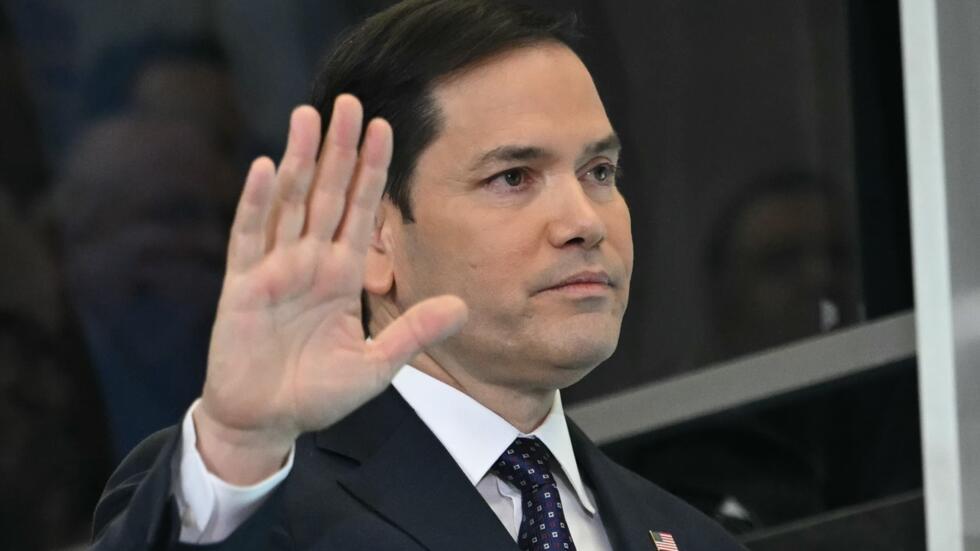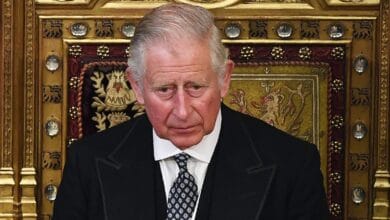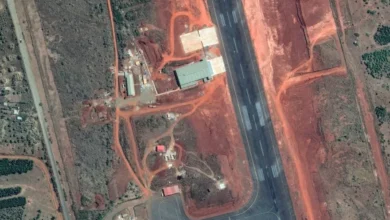تعزيز المعونات الخارجية مجددا
بقلم :
وزير الخارجية الأميركي ماركو روبيو
1 يوليو 2025
يقع على عاتق كل موظف حكومي التزام تجاه المواطنين الأميركيين بضمان أن أي برامج يمولها تخدم مصالح أمتنا. خلال المراجعة الشاملة التي أجرتها إدارة ترامب لآلاف البرامج، ولأكثر من 715 مليار دولار من الإنفاق المعدل حسب التضخم على مدى عقود، اتضح أن الوكالة الأميركية للتنمية الدولية تراجعت كثيرًا عن هذا المعيار.
لقد كانت لدى الوكالة الأميركية للتنمية الدولية عقود من الزمن وميزانية لا حدود لها تقريبًا من أموال دافعي الضرائب لتعزيز النفوذ الأميركي، وتشجيع التنمية الاقتصادية في جميع أنحاء العالم، وتمكين مليارات الأشخاص من الاعتماد على أنفسهم.
وباستثناء إنشاء مجمع صناعي للمنظمات غير الحكومية في أرجاء العالم على حساب دافعي الضرائب، لم تحقق الوكالة الأميركية للتنمية الدولية سوى القليل منذ نهاية الحرب الباردة.
نادرًا ما تحققت أهداف التنمية، وتفاقم عدم الاستقرار في كثير من الأحيان، وتزايدت المشاعر المعادية لأميركا. على الصعيد العالمي، عادةً ما تفشل الدول الأكثر استفادة من كرمنا في رد الجميل.
على سبيل المثال، في عام 2023، صوّتت دول أفريقيا جنوب الصحراء الكبرى مع الولايات المتحدة بنسبة 29% فقط من المرات على القرارات الأساسية في الأمم المتحدة، على الرغم من تلقيها 165 مليار دولار من المدفوعات منذ عام 1991. هذا أدنى معدل في العالم.
وخلال الفترة نفسها، لم يؤد استثمار أكثر من 89 مليار دولار في الشرق الأوسط وشمال أفريقيا سوى إلى انخفاض شعبية الولايات المتحدة مقارنةً بالصين في جميع الدول باستثناء المغرب.
كما إن إنفاق الوكالة البالغ 9.3 مليار دولار في غزة والضفة الغربية منذ عام 1991، والذي كان من بين المستفيدين منه حلفاء حماس، لم يؤد سوى إلى الشكاوى والتظلمات بدلا من الامتنان تجاه الولايات المتحدة.
كان الوحيدون الذين يعيشون حياة رغيدة هم المديرون التنفيذيون للمنظمات غير الحكومية العديدة، الذين غالبًا ما كانوا يتمتعون بنمط حياة فاخر بتمويل من دافعي الضرائب الأميركيين، بينما تخلف أولئك الذي زعمت المنظمات مساعدتهم عن الركب.
لقد انتهت رسميًا حقبة عدم الكفاءة التي كانت تُقرّها الحكومة. وفي ظل إدارة ترامب، سيكون لدينا أخيرًا هيئة تمويل أجنبي في أميركا تُعطي الأولوية لمصالحنا الوطنية. واعتبارًا من الأول من تموز/يوليو، ستتوقف الوكالة الأميركية للتنمية الدولية رسميًا عن تقديم المساعدات الخارجية. وستتولى وزارة الخارجية إدارة برامج المساعدات الخارجية التي تتوافق مع سياسات الإدارة – والتي تخدم المصالح الأميركية – حيث سيتم تقديمها بمزيد من المساءلة والاستراتيجية والكفاءة.
نحن لن نعتذر عن إدراكنا أن التزام أميركا الراسخ بالمساعدات الإنسانية المنقذة للحياة وتعزيز التنمية الاقتصادية في الخارج يجب أن يكون تعزيزًا لسياسة خارجية قوامها ’أميركا أولا‘.
كانت الوكالة الأميركية للتنمية الدولية تنظر إلى جمهورها المستهدف على أنه الأمم المتحدة والمنظمات غير الحكومية متعددة الجنسيات والمجتمع العالمي الأوسع – وليس دافعي الضرائب الأميركيين الذين مولوا ميزانيتها أو الرئيس الذي انتخبوه لتمثيل مصالحهم على الساحة العالمية.
وقد سوّقت الوكالة الأميركية للتنمية الدولية برامجها على أنها مؤسسة خيرية، بدلًا من كونها أدوات للسياسة الخارجية الأميركية تهدف إلى خدمة مصالحنا الوطنية. وفي كثير من الأحيان، روّجت هذه البرامج لمُثُل وجماعات معادية لأميركا، بدءًا من مبدأ “التنوع والإنصاف والإدماج” العالمي، وعمليات الرقابة وتغيير الأنظمة، وصولًا إلى منظمات غير حكومية ومنظمات دولية متحالفة مع الصين الشيوعية وغيرها من الخصوم الجيوسياسيين.
واليوم، ينتهي ذلك، وحيث كان هناك مجموعة من الشعارات المبهمة التي لا يمكن التعرف عليها على المساعدات المنقذة للحياة، سيكون هناك الآن رمز واحد يمكن التعرف عليه: العلم الأميركي. متلقو المساعدات يستحقون أن يعرفوا أن المساعدات المقدمة لهم ليست صدقة من منظمة غير حكومية مجهولة، بل هي استثمار من الشعب الأميركي.
وبالقدر نفسه من الأهمية، فشل نموذج العمل الخيري لأن قيادات هذه الدول النامية أصبحت مدمنة عليه. تشير أبحاث وزارة الخارجية الأميركية إلى أن التوجه السائد في الدول التي كانت تتلقى تمويلًا من الوكالة الأميركية للتنمية الدولية سابقًا هو التجارة، وليس المساعدات.
وبعد التواصل مع دول في أميركا اللاتينية وأفريقيا، سمعنا باستمرار أن الدول النامية تريد استثمارات تُمكّنها من النمو المستدام – وليس عقودًا من رعاية الدعم الذي تُديره الأمم المتحدة أو الوكالة الأميركية للتنمية الدولية.
وقد سمعتْ الوزارة الأمر نفسه باستمرار من أشخاص في هذه الدول: فقد أخبر رجل من زامبيا دبلوماسيين أميركيين أنه من المفيد أكثر لمواطني بلده أن يتعلموا كيفية صيد الأسماك بدلاً من أن تعطيهم الحكومة الأميركية السمك، وقالت امرأة إثيوبية إنها ترى أن المنافع المتبادلة للاستثمار تفوق الطبيعة الأحادية الجانب للمعونات، وغيرها الكثير من الأمثلة التي لا تُحصى.
يجب ألا يدفع الأميركيون ضرائب لتمويل حكومات فاشلة في بلدان بعيدة. وفي المستقبل، ستكون مساعداتنا موجّهة ومحدودة زمنيًا. سنُفضّل الدول التي أظهرت القدرة والرغبة في مساعدة نفسها، وسنُوجّه مواردنا نحو المناطق التي يمكن أن تُحدِث فيها تأثيرًا مضاعفا وتُحفّز القطاع الخاص المُستدام، بما في ذلك الشركات الأميركية، والاستثمار العالمي.
هذا العمل جارٍ على قدم وساق. ونحن نشهد بالفعل تقدّمًا هائلًا في جعل الأمم المتحدة والحلفاء الآخرين والصناديق الخاصة تُساهم بحصة أكبر في تمويل المشاريع حول العالم، وهي عملية يُضاهيها نجاح الرئيس في إقناع حلفائنا في الناتو بالوفاء بالتزاماتهم في الإنفاق. ونحن نعمل على دمج حسابات المخصصات المجزأة لبناء مجموعات صناديق تمويل أكثر مرونة وحيوية، والقضاء على العمليات البيروقراطية للتحرك بشكل أسرع والاستجابة للأزمات في الوقت الفعلي، وتطبيق معايير كفاءة جديدة لقياس التأثير بطريقة كمية. وعن طريق تمكين الدبلوماسيين على الأرض من خلال المكاتب الإقليمية، فإننا ننشئ قناة سريعة لتلقي الآراء والملاحظات لضمان توافق البرامج مع المصالح الأميركية واحتياجات الدول الشريكة.
وهذا النموذج سيضعنا أيضًا في موقف أقوى لمواجهة نموذج المساعدات الاستغلالي للصين، وتعزيز مصالحنا الاستراتيجية في المناطق الرئيسية حول العالم.
سنحقق ذلك من خلال إعطاء الأولوية للتجارة على المساعدات، وللفرص على التبعية، وللاستثمار على المساعدة. وبالنسبة للأميركيين وكثيرين حول العالم، سيُمثل الأول من تموز/يوليو بداية حقبة جديدة من الشراكة العالمية والسلام والاستثمار والازدهار.
النص الأصلي :
Making Foreign Aid Great Again
STATEDEPT
JUL 01, 2025
Author: U.S. Secretary of State Marco Rubio
Every public servant has an obligation to American citizens to ensure any programs they fund advance our nation’s interests. During the Trump Administration’s thorough review of thousands of programs, and over $715 billion in inflation-adjusted spending over the decades, it became apparent the U.S. Agency for International Development (USAID) fell well below this standard.
USAID had decades and a near-infinite taxpayer budget to advance American influence, promote economic development worldwide, and allow billions to stand on their own two feet.
Beyond creating a globe-spanning NGO industrial complex at taxpayer expense, USAID has little to show since the end of the Cold War. Development objectives have rarely been met, instability has often worsened, and anti-American sentiment has only grown. On the global stage, the countries that benefit the most from our generosity usually fail to reciprocate. For example, in 2023, sub-Saharan African nations voted with the United States only 29 percent of the time on essential resolutions at the UN despite receiving $165 billion in outlays since 1991. That’s the lowest rate in the world. Over the same period, more than $89 billion invested in the Middle East and North Africa left the U.S. with lower favorability ratings than China in every nation but Morocco. The agency’s expenditure of $9.3 billion in Gaza and the West Bank since 1991, whose beneficiaries included allies of Hamas, has produced grievances rather than gratitude towards the United States. The only ones living well were the executives of the countless NGOs, who often enjoyed five-star lifestyles funded by American taxpayers, while those they purported to help fell further behind.
This era of government-sanctioned inefficiency has officially come to an end. Under the Trump Administration, we will finally have a foreign funding mission in America that prioritizes our national interests. As of July 1st, USAID will officially cease to implement foreign assistance. Foreign assistance programs that align with administration policies—and which advance American interests—will be administered by the State Department, where they will be delivered with more accountability, strategy, and efficiency.
We will not apologize for recognizing America’s longstanding commitment to life-saving humanitarian aid and promotion of economic development abroad must be in furtherance of an America First foreign policy.
USAID viewed its constituency as the United Nations, multinational NGOs, and the broader global community—not the U.S. taxpayers who funded its budget or the President they elected to represent their interests on the world stage. USAID marketed its programs as a charity, rather than instruments of American foreign policy intended to advance our national interests. Too often, these programs promoted anti-American ideals and groups, from global “DEI,” censorship and regime change operations, to NGOs and international organizations in league with Communist China and other geopolitical adversaries.
That ends today, and where there was once a rainbow of unidentifiable logos on life-saving aid, there will now be one recognizable symbol: the American flag. Recipients deserve to know the assistance provided to them is not a handout from an unknown NGO, but an investment from the American people.
Equally importantly, the charity-based model failed because the leadership of these developing nations developed an addiction. State Department research finds the overwhelming sentiment in countries formerly receiving USAID funding is for trade, not aid. After engaging with nations across Latin America and Africa, we have consistently heard that developing countries want investment that empowers them to sustainably grow—not decades of patronizing UN or USAID managed support. The Department has consistently heard the same from people in these nations: a Zambian man told American diplomats it would be more helpful for his countrymen to learn how to fish than to be supplied with fish by the U.S. Government, an Ethiopian woman said she viewed the mutual benefits of investment as superior to the one-sided nature of aid, and too many other examples to recount.
Americans should not pay taxes to fund failed governments in faraway lands. Moving forward, our assistance will be targeted and time limited. We will favor those nations that have demonstrated both the ability and willingness to help themselves and will target our resources to areas where they can have a multiplier effect and catalyze durable private sector, including American companies, and global investment.
This work is well underway. We are already seeing tremendous progress in making the UN, other allies, and private funds pay a greater share of projects around the world, a process matched by the President’s success in convincing our NATO allies to meet their spending commitments. We are consolidating fragmented appropriations accounts to build more flexible and dynamic pools of funds, eliminating bureaucratic processes to move faster and respond to crises in real time, and implementing new efficiency criteria to measure impact quantitatively. By empowering diplomats on the ground through regional bureaus, we are creating a fast feedback loop to ensure programs align with American interests and the needs of partner nations.
This model will also place us in a stronger position to counter China’s exploitative aid model and further our strategic interests in key regions around the world.
We will do so by prioritizing trade over aid, opportunity over dependency, and investment over assistance. For Americans and many around the world, July 1st will mark the beginning of a new era of global partnership, peace, investment, and prosperity.
Marco Rubio was sworn in as the 72nd secretary of state on January 21, 2025. The secretary is creating a Department of State that puts America First.
|




